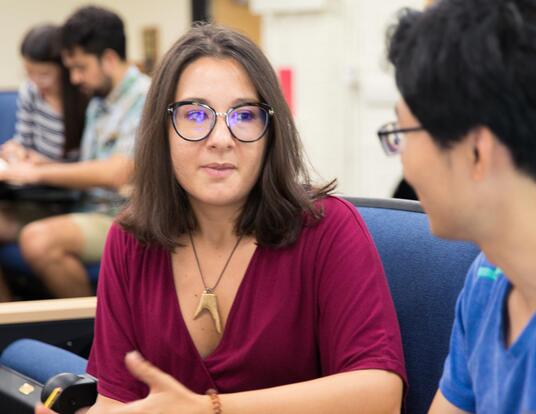Update on Task Force on Managing Student Mental Health
Dear GSAS Students,
Earlier today, the Task Force on Managing Student Mental Health released its final report and a list of recommendations for improving the mental health of Harvard students. This report is the culmination of 18 months of study into how Harvard can best address the mix of academic, social, and institutional issues that have the potential to influence student mental health. As a member of the task force steering committee and chair of the working group on graduate and professional students, I am proud of the work accomplished by the faculty, students, and staff on the task force committee. I want to thank those of you who participated in surveys and focus groups for sharing your experiences and ideas for how Harvard can do better.
As the task force conducted its work, committee members kept focused on an important fact: While student mental health is of concern at Harvard, it is a symptom of larger issues that must be addressed before mental health can improve. For example, interviews with students noted that the isolation and uncertainty inherent in the long pursuit of an advanced degree, imposter phenomenon, and a culture of overwork increase mental health issues. Others concerned about whether, after years of study, they will be successful in finding a job after graduation report effects on their well-being. Students from marginalized groups, including underrepresented minorities, first generation students, low socioeconomic status students, and students who identify as LGBTQ regularly confront discrimination and microaggressions that impact their lives tremendously. Critically, a greater percent screen positive for depression and anxiety and students who are members of more than one marginalized group present at even higher rates. These issues can contribute to student well-being and we must work to address them.
At GSAS, we have engaged in a sustained effort to identify many of the issues noted in the task force report. Several years ago, at the request of a group of students, we began partnering with Dr. Paul Barreira, then director of Harvard University Health Services, on a series of mental health surveys. This project provided crucial data and insight to the task force. Last fall, I launched The Advising Project, focused on improving the advising experience of master’s and PhD students at GSAS, which includes a working group of faculty, students, and administrators. We have also consulted with experts on mentoring from outside Harvard, and they have begun to engage faculty in conversations on best practices. Most recently, a survey about the impact of COVID-19 on the student experience provided important data on advising during this unprecedented time, and we are using these data to engage our directors of graduate studies in conversations about how to ensure that both informal and formal graduate student advising is occurring in this new remote reality.
These ongoing efforts provide a framework to act on the recommendations of the task force. While there is much work to be done, in the near term, our activities will include the following:
- Through The Advising Project, we will continue to evaluate what constitutes effective advising, develop best practices, disseminate information about how students, faculty, and other partners can work together to enhance the advising experience, and address unsatisfactory advising. The task force results will be instrumental in informing and driving this process, and we will develop and incorporate solutions grounded in addressing the issues contributing to mental health problems that can arise from the advising relationship.
- Through GSAS’s Office of Diversity and Minority Affairs, we will continue to examine the racism, bias, and discrimination many of our students from marginalized groups experience. Critically, we will work toward solutions that improve their graduate school experience, paying close attention to our own policies as well as the program, department, and University climate and working on ways to ensure an open and supportive culture of interactions between students, faculty, and staff.
- We will work with our graduate program partners—both directors of graduate studies and graduate program administrators, with whom GSAS meets regularly—to evaluate concerns about job security after graduation, the master’s student experience, and processes that can be improved to ensure students don’t fall through the cracks.
- We will continue to partner with Dr. Barreira and students to assess graduate student mental health in each of our graduate programs. Importantly, we will continue to use the data collected to work with programs to identify ways in which changes in practices or new interventions can decrease stress and improve student well-being.
Our overall effort to improve student mental health will require focused and sustained work, and GSAS is committed to undertaking that work. The Task Force on Managing Student Mental Health report recommends that, three years from the inception of the recommendations, an independent evaluation be performed to report on the progress made. GSAS will also provide updates through The Advising Project, the Office of Diversity and Minority Affairs, and other methods with the aim of sharing our progress in producing real change at Harvard for the benefit of all GSAS students. If you would like to contribute an idea for GSAS to consider, please email The Advising Project.
With all best wishes,
Emma Dench
Dean of the Graduate School of Arts and Sciences
McLean Professor of Ancient and Modern History and of the Classics
Get the Latest Updates
Join Our Newsletter
Subscribe to Colloquy Podcast
Simplecast





